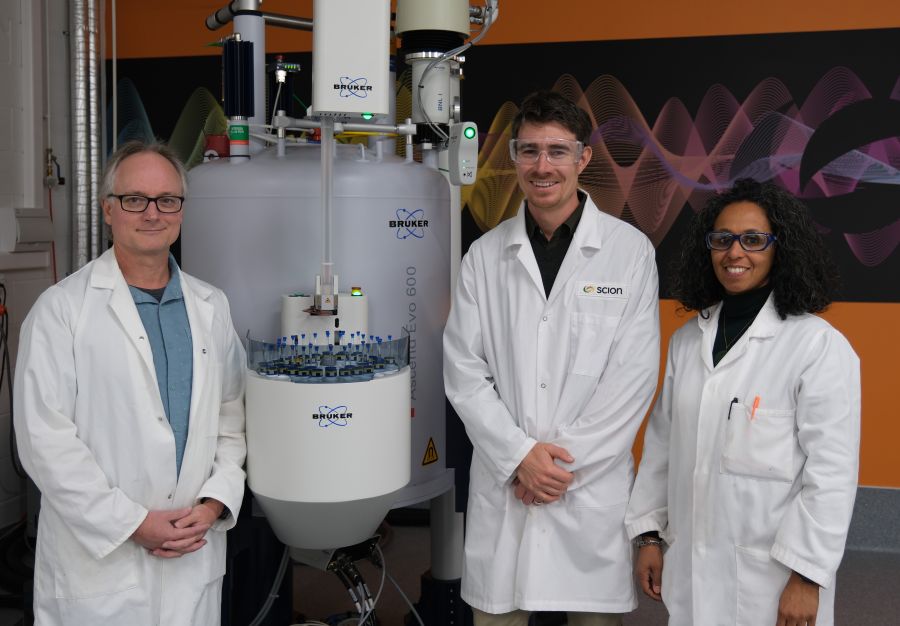Insects turn waste into value

24 July 2025
Bioeconomy Science Institue researchers have $3 million in funding to investigate the potential of black soldier fly larvae (BSFL) to produce health-promoting ingredients for humans.
The study taps into a growing interest in using insects to turn waste into high-value products and beneficial compounds such as antioxidants and anti-inflammatory agents that can positively impact human health. Project lead Dr Jamie Bridson, of the Scion Group, Bioeconomy Science Institute, says this complements other current research, which focuses on using BSFL to convert organic waste into high-quality protein for animal feed.
“We want to recover useful ingredients from the larvae while still keeping the leftover material suitable as high-protein animal feed. It’s about adding value at every step.”
Over the next three years, researchers will examine breeding, feeding and housing conditions to improve larvae health and the quality of the beneficial substances they produce. The project will also explore efficient extraction methods, assess economic viability and study what consumers want from insect-based products.
“These larvae are like little bio-factories,” Jamie says. “By adjusting what they eat and how we raise them, we can influence the natural compounds they produce that could be valuable for human health.
The Scion Group is collaborating with Plant & Food Research – also a group within the Bioeconomy Science Institute – and Natural Extraction Technologies in New Zealand on the project, alongside partners at the National University of Singapore (NUS) and Singapore’s Agency for Science, Technology and Research (A*STAR).
The project will use key infrastructure, including a pilot rearing facility at Plant & Food Research that supports the development and testing of insect farming at scale). Researchers will also utilise Scion Group's upgraded Nuclear Magnetic Resonance suite (a valuable asset for analysing plant and bio-based substances) and National University of Singapore’s advanced insect rearing chambers, which help improve insect farming systems and optimise how the larvae are grown and processed.
“A portion of the funding will be used to replicate the insect chamber setup in New Zealand,” Jamie says. “It would allow us to mirror trials across both countries and speed up research by testing in different environments.”
The overall goal is to prove this approach is scientifically sound, economically viable and market-ready.
“If we can show these tiny insects can help reduce waste and support human health, it could open the door to a whole new kind of sustainable food system,” Jamie says.
This project, jointly administered by New Zealand’s Ministry of Business, Innovation and Employment (MBIE) and A*STAR, supports collaborative research in advanced biotechnology solutions for future food systems.
Funding has been awarded through the New Zealand–Singapore Catalyst: Strategic Biotech in Future Food Research Programme.
